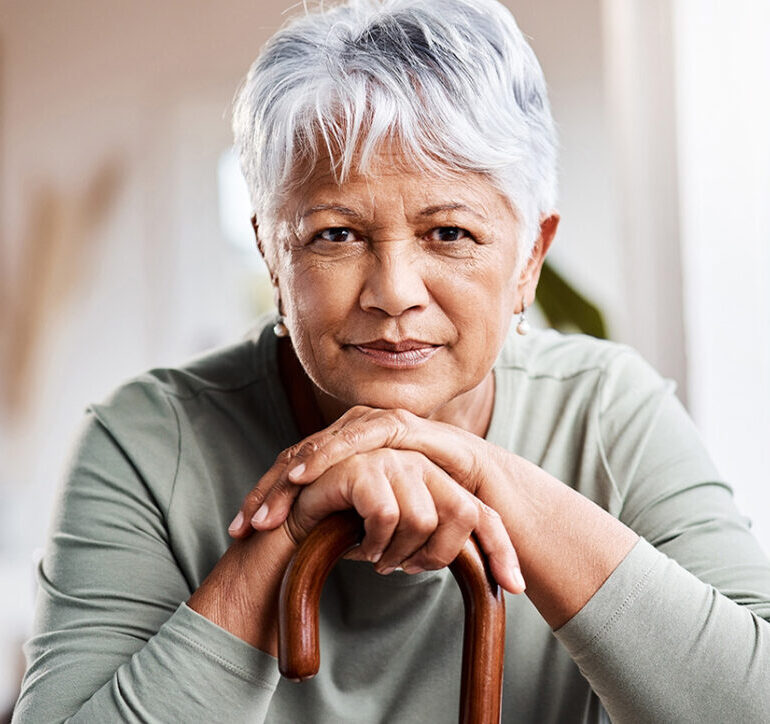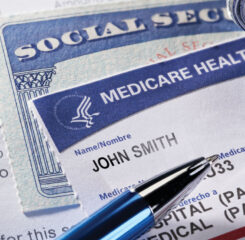HUD Announces Federal Partnership to Increase Vaccine Access
During a joint news conference on May 5, the Secretaries of HUD and the Department of Health and Human Services (HHS) announced a joint agency effort to increase access to COVID-19 vaccinations.
“More than 100 million Americans are now fully vaccinated. Yet there are many others who still need help getting the vaccine. To raise our vaccination numbers even higher, we must continue to center our efforts around the guiding principle of equity,” said HUD Secretary Fudge during the news conference. “Many of the people that HUD serves are among the most vulnerable in our society. They’re seniors, they’re people with disabilities, they’re people of color from households of modest means, and they’re people who are experiencing homelessness. This new partnership between HHS and HUD is about saving lives by expanding access to comprehensive COVID care for those in need. It’s about meeting people where they are—and about bringing health care home.”
Ensuring Equitable Pandemic Recovery
To improve vaccine access at HUD communities, HUD Secretary Marcia Fudge and HHS Secretary Xavier Becerra issued a joint letter directing 1,470 community health centers participating in the Health Center Vaccine Program to partner with HUD-assisted housing to provide COVID-19 vaccines and testing to HUD-assisted households.
The letter states: “In response to the President’s [Executive Order on Ensuring Equitable Pandemic Recovery], we, the Secretaries of Health and Human Services (HHS) and Housing and Urban Development (HUD), are directing our agencies to ensure that the national response to COVID-19 delivers equitable, comprehensive care to those experiencing disproportionate impact, including HUD-assisted individuals and households.”
The letter goes on to emphasize the high risk of COVID-19 for HUD-assisted residents: “The efforts underway by HHS-approved community health centers are critically important to the people and households assisted by HUD, who have a higher prevalence of risk factors that may place them at increased risk of COVID-19 transmission, illness, and mortality.”
These risk factors include race, age, disability, and underlying health conditions. “They often live in high-density housing or congregate settings (e.g.) homeless shelters) and have mobility and transportation needs. Additionally, many HUD-assisted individuals and households live at or below the poverty level,” says the joint HUD/HHS letter.
Connecting HUD-Assisted Communities with Community Health Centers
During a separate May 5 call hosted by CDC’s Vaccine Task Force, HUD Senior Advisor for Housing and Services Richard Cho discussed the joint HUD/HHS announcement in more detail. The community health centers will take the following steps:
- Conduct targeted outreach to HUD-assisted housing communities regarding COVID-19 vaccine efficacy and safety;
- Facilitate on-site vaccine clinics at HUD-assisted communities, and provide mobile facilities serving people experiencing unsheltered homelessness;
- Assist with transportation as needed to vaccine sites, including for people who have limited mobility;
- Support self, mobile, drive-up, and/or walk-up testing that addresses the unique and evolving access barriers of HUD-assisted and HUD-qualifying residents; and
- Provide information regarding access to comprehensive primary health care services.
To help build these partnerships, HUD has also developed a mapping tool that shows the locations of Multifamily Housing properties, Public Housing developments, and Continuum of Care (CoC) grantees in relation to Federally-Qualified Health Centers (FQHCs). The mapping tool also highlights “priority communities,” which are areas more than 8 driving miles away from an FQHC that house at least 20% HUD-assisted residents. During the call, two areas just east of Akron, Ohio were shown as examples of “priority communities” in the map.
Facilitating Broader Access to COVID-19 Vaccines and Testing
According to a factsheet released by HUD, the agencies directing all community health centers to establish or expand existing partnerships with local HUD grantees and program participants, including single- and multi-family housing owners/managers, public housing authorities, Continuums of Care, and homeless providers.
The HUD-HHS partnership is estimated to cover:
- Approximately 7,500 public housing properties
- More than 6,000 multi-family housing properties
- More than 6,700 homeless shelters
LeadingAge welcomes the effort by HUD and HHS to connect affordable housing communities to health resources and encourages housing providers to utilize HUD’s new mapping tool to reach out directly to your community health centers.

Most Recommended
October 15, 2025
 Shutdown Week Three: Impact of Ongoing Closure on Affordable Housing
Shutdown Week Three: Impact of Ongoing Closure on Affordable Housing
February 24, 2026
Fiscal Year (FY) Funding 2026
October 07, 2025
Immigrant Workforce Matching Program Brings Workforce Relief
Recently Added
February 26, 2026
 Vance, Oz Announce Medicaid Funding Withheld From Minnesota
Vance, Oz Announce Medicaid Funding Withheld From Minnesota
February 25, 2026
CBO: HR 1 Speeds Medicare Part A Insolvency by 12 Years
February 24, 2026
DHS Proposes Asylum-Related Work Authorization Change
February 20, 2026



